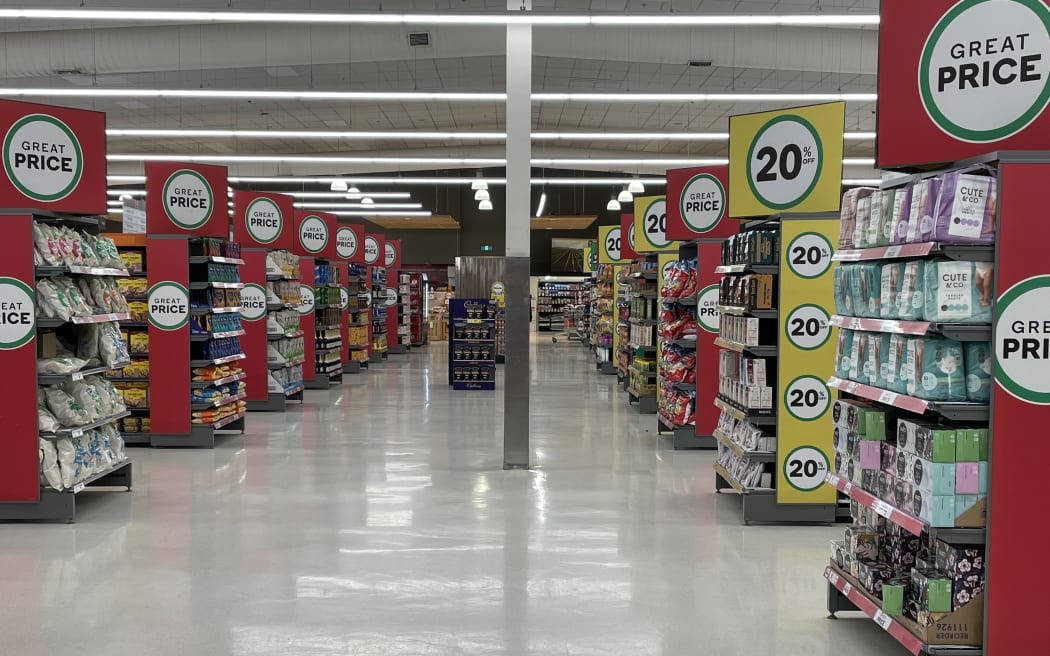The failure of a plucky online grocery competitor has left a big question: if Supie can't break through the supermarket duopoly, who or what can?

After three years battling the big grocery players, Supie founder Sarah Balle says she is "devastated" to place the company into voluntary administration. Photo: Newsroom
Efforts to break the supermarket duopoly took another blow this week with the collapse of online grocer Supie.
The company went into voluntary administration, owing $3 million to creditors after a key investor pulled out.
The news shocked the 120 staff and hundreds of other creditors such as small food producers, as well as customers who had paid membership fees or money upfront for their groceries.
Investor and former director Ben Kepes says it will take some time to work out the reasons for the collapse but the founder Sarah Balle should not be blamed and he would back her again.
"Were we too early? Was the New Zealand market ready to do online? What were timing failings versus execution failings? There's a bunch of stuff to unpick and that will happen in the coming weeks and months and years," says Kepes.
The problems in the supermarket sector have been well covered, including the lack of competition and the fact that the two companies in the duopoly control it all the way from the suppliers to the retail outlets.
Kepes says that Supie's prices were regularly cheaper than the supermarkets and yet customers stuck to their habits of the weekly supermarket shop.
"I'm not going to say that Supie's demise was the fault of consumers, not at all. But if we want competition in the marketplace we need to support competitive initiatives," he says.

Supie founder Sarah Balle. Photo: Maegan McDowell Photography / Supplied promotional image
Not everyone was surprised by Supie's failure, says Newsroom Pro's managing editor Jonathan Milne. The chief executive of the Simplicity KiwiSaver scheme Sam Stubbs had been approached at the last minute to take part in the capital raise but turned down the request. Simplicity looked at Supie's books, "loved Sarah's vision", but it didn't think it could survive.
Milne says the founder Sarah Balle put everything into Supie. She had sold her car and was living at home with her parents. Since launching the online business less than three years ago it has grown to 80,000 customers, but it did not have enough money to invest in infrastructure to keep it up.
"The rapid growth has actually been one of the big challenges for it because they just haven't been able to get enough cash investment to keep up with their demand. They're getting so many members and they've had a lot of publicity, obviously, through Sarah's profile in the Commerce Commission inquiry into the grocery sector where she's been a very robust critic of the supermarkets."
Milne says Supie's failure also highlights the problems associated with the supermarket giants' control over the wholesale market and the difficulties independent retailers face in dealing with suppliers and negotiating good prices.

New Zealand's grocery market is dominated by two players: Woolworths (Countdown, SuperValue and FreshChoice) and Foodstuffs (New World, Pak'n'Save and Four Square). Photo: Bill McKay
The previous government had tried to address it by requiring the supermarkets to open up their wholesale distribution network to small independents like dairies and green grocers.
"Sarah Balle's view was that this only strengthened the supermarkets' hand by forcing all the independents to go to the supermarkets to get their supplies," says Milne. Balle had managed to negotiate direct agreements with suppliers but she was still paying a higher price than the supermarkets.
Milne explains the different scenarios to break the duopoly, all of which would require hundreds of millions of dollars of overseas investment or government intervention – including a government-owned "Kiwigrocer" – and why they would be difficult to implement.
But one option that could work, he says, is by making changes to government procurement, where food grants from the Ministry for Social Development and other government agencies could be redeemed at independent retailers.
"We're not talking about slanting the procurement rules to cut the big players out, but just to be sure to be fair to the small players, fair to the independents.
"For Nicola Willis, who says that if she's finance minister she wants to address this problem, I wonder if that's a slightly more elegant solution for her than taking on the big supermarket chains with a big hammer."
Check out how to listen to and follow The Detail here.
You can also stay up-to-date by liking us on Facebook or following us on Twitter.

Photo:


